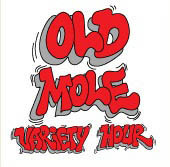
On January 22, 1973, the U.S. Supreme Court released its Roe v. Wade decision legalizing abortion, now overturned by the 2022 Dobbs decision. This episode of the Old Mole looks at the history of abortion access in Portland and at the broader context of reproductive justice, including problems arising from capitalism, imperialism, and racism, as well as modes of resistance. This episode is hosted by Frann Michel and includes these segments:
Social History of Abortion in Portland
During the century that preceded Roe v Wade in 1973, abortion was illegal in Oregon. Even so, women consistently sought and obtained abortions, including from licensed physicians. But whether the practice was officially tolerated or suppressed fluctuated significantly over that period. Patricia Kullberg, in conversation with Norm Diamond, takes a look at the major social, political and economic factors that determined access to a safe abortion during an era when abortion was against the law. What lessons might be learned about the current day assault on reproductive rights? Kullberg is a retired primary care physician and author of the novel, Girl in the River, about the politics of sex and reproduction in Portland during the thirties and forties. For more on this topic see Michael Helquist’s article published in the Oregon Historical Quarterly: "‘Criminal Operations’: The First Fifty Years of Abortion Trials in Portland, Oregon."
A few months ago, the U.S. Supreme Court heard a challenge to a federal law designed to keep indigenous children from being taken from their families and put up for adoption outside of their tribes. Oregon writer and photographer Matt Witt tells us about a riveting TV series that brings this problem to life in human terms.
Carol Anderson on Resisting the History of Fascism in the US
At the annual meetings of the American Historical Association in early January, Dr. Carol Anderson joined a panel of scholars tasked with responding to the question, “Is the United States Turning Toward Fascism”? Jan Haaken talks with Anderson about her comments on the panel, beginning with the January 6th attack on the Capital and her analysis of the role of white nationalism. They also discuss what can be learned from the history of fascism in the US in resisting current right-wing assaults on public institutions and voting rights. Dr. Anderson is professor of African American Studies at Emory University and author of numerous award-winning books, including White Rage: The Unspoken Truth of our Racial Divide and One Person, No Vote: How Voter Suppression is Destroying our Democracy.
Also of note:
History Shows Community Solidarity Is Essential for Making Abortion Accessible: In the wake of "Dobbs", we must again center community solidarity around bodily autonomy, like we did before “Roe.” By Lizzie Chadbourne, January 2, 2024 on Truthout
The Religious Right and the Abortion Myth: White evangelicals in the 1970s didn’t initially care about abortion. They organized to defend racial segregation in evangelical institutions — and only seized on banning abortion because it was more palatable than their real goal. By Randall Balmer 05/10/2022 on Politico
Restrictive voting laws have major implications for presidential election: Voting laws in 2024 are largely more restrictive than in 2020, and the Biden Administration shouldn’t underestimate the anger many voters have over its support of Israel by Sravya Tadepalli January 17th, 2024 on Prism Reports
- KBOO



